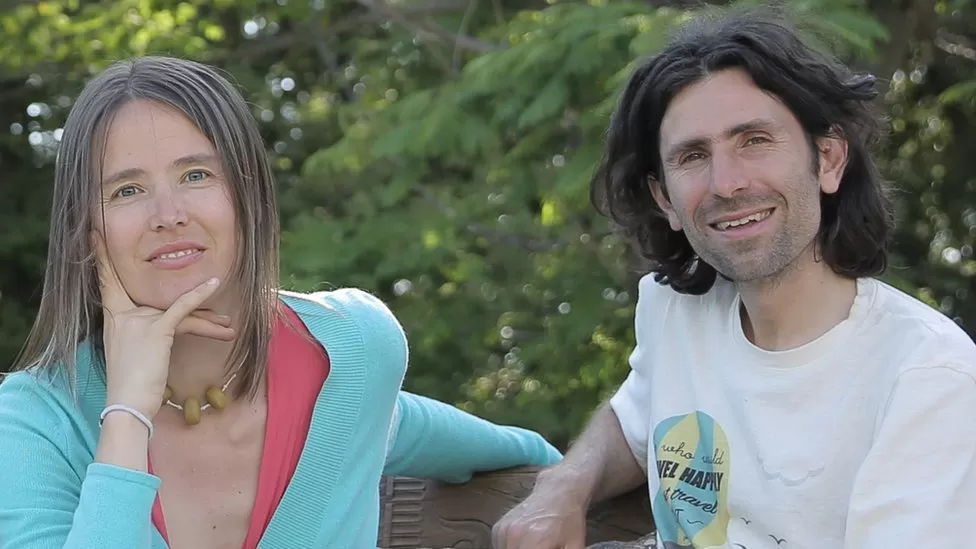Silvia Ombellini and her husband Simone Riccardi came up with the concept to launch a website devoted to sustainable tourism while on a business trip to an Italian city.
Ten years ago, Mr. Riccardi was employed by an Italian university and had to travel to the southern city of Potenza for a conference.
The couple claims that they really had trouble finding a hotel with good environmental credentials, despite their desire to book one. “We were looking for sustainable accommodation, but it was not so easy to find online and book,” says Ombellini.
Thus, it gave rise to the concept for a company: Ecobnb, a website that allows users to look for eco-friendly lodging options such as B&Bs, houses for rent, and hotels.
“We wanted to create a meeting point between eco travellers and accommodation owners investing in a better future,” says Ombellini.
A vegan and organic farmhouse in Tuscany and an eco-mountain lodge in Costa Rica are just two of the more than 3,000 properties listed on the website Ecobnb, which is headquartered in Trento, northern Italy.
Accommodation providers need to fulfill a minimum of five out of ten standards in order to be featured on the website. They include: using only renewable energy; providing organic or locally sourced food; collecting and reusing rainwater; using low-energy lightbulbs; heating water with solar power; ensuring that over 80% of waste is recycled; using eco-friendly cleaning supplies; installing water flow reducers; incorporating environmentally friendly architecture; and being reachable without the need for a car.
Travelers can, however, narrow down their search to focus on particular interests, like plant-based cuisine and renewable energy-powered electric vehicle charging stations.
According to Ms. Ombellini, some lodging establishments give discounts to visitors who arrive by bicycle or who don’t use a car while traveling.
Ecobnb does not collect payment when a user finds a place they want to reserve. Instead, it makes contact with the property, which emails the individual directly. By charging venues a monthly subscription fee to be listed on its website, Ecobnb generates revenue.
2.8 million travelers use Ecobnb annually, up from 780,000 in 2018, according to Ms. Ombellini.
“Holidaymakers are rethinking their relationship with planet Earth,” she claims. “There is a new awareness, especially in young people, about our responsibility for our future and for the planet.”
This seems to be supported by statistics. According to a study conducted this year, 69% of travelers are now “actively seeking sustainable travel options”.
Conscious Hotels is a chain of seven eco-hotels in the Netherlands. Its environmental features include serving only vegetarian food, 90% of which comes from within a 90-kilometer (56-mile) radius, and only using renewable energy and sustainably sourced furniture.
According to Marco Lemmers, chief executive of Conscious Hotels, “we have a lifecycle assessment approach to sustainability on the planet side.”
We must consider the effects of climate change on biodiversity, land use, and toxins in addition to its effects on land use. We consider every facet of our hotel operations and ensure that every decision is sustainable.
“More travellers are putting sustainability into the equation and choosing sustainable options, because they believe that they should do something to preserve the planet.”
Byway Travel, a flight-free travel company, saw an increase in demand for its services from 173 bookings in 2021 to 2,200 for this year since its founding in 2020.
The company, which arranges private tours for clients, is also committed to preventing overtourism. For instance, it picks Trieste, an Italian port city, over Venice, a destination with far more tourists, for those seeking a waterfront café culture.
“Not requiring flights makes our trips more environmentally friendly,” says Cat Jones, the founder of Byway Travel.
“But also because we aim to reduce the climate impact of over tourism, boost the local economies of all the wonderful places in between, and increase the proportion of spend on sustainable products and services, by prioritising partnerships with local and sustainable businesses.”
According to Marina Novelli, a professor of tourism and international development, more businesses in the travel sector are implementing environmentally friendly practices like recycling, solar energy, cold water storage, and repurposing.
But according to her, equality laws, equitable compensation, and employment practices should all be included in sustainability.
Prof. Novelli also cautions that, similar to many other industries, there is a lot of “greenwashing” going on, with hotels and other lodging establishments pretending to be green while really falling short.
She asserts that it is the traveler’s responsibility to overcome this. “I’m pushing back to the consumer responsibility, because if we keep asking those question providers will be pushed to actually do the right thing,” she continues.
Despite its emphasis on sustainability, how sustainable is Ecobnb when a large number of people may be traveling by plane to get to the lodgings it offers?
Ms. Ombellini concurs, saying, “The impact of the flights’ travel is very big.” “We are pushing the staycation model a lot, and we are trying to invite people to discover their own countries and to avoid the flights when it’s possible.”
To what extent does she see green travel as a bright future?
“More people are interested in green lifestyles every day,” she claims. And now, when they go on vacation, they search for the same environmentally friendly options.
“By combining these small decisions, we can alter the situation and create something new. We have the power to bring about the change we wish to see in

